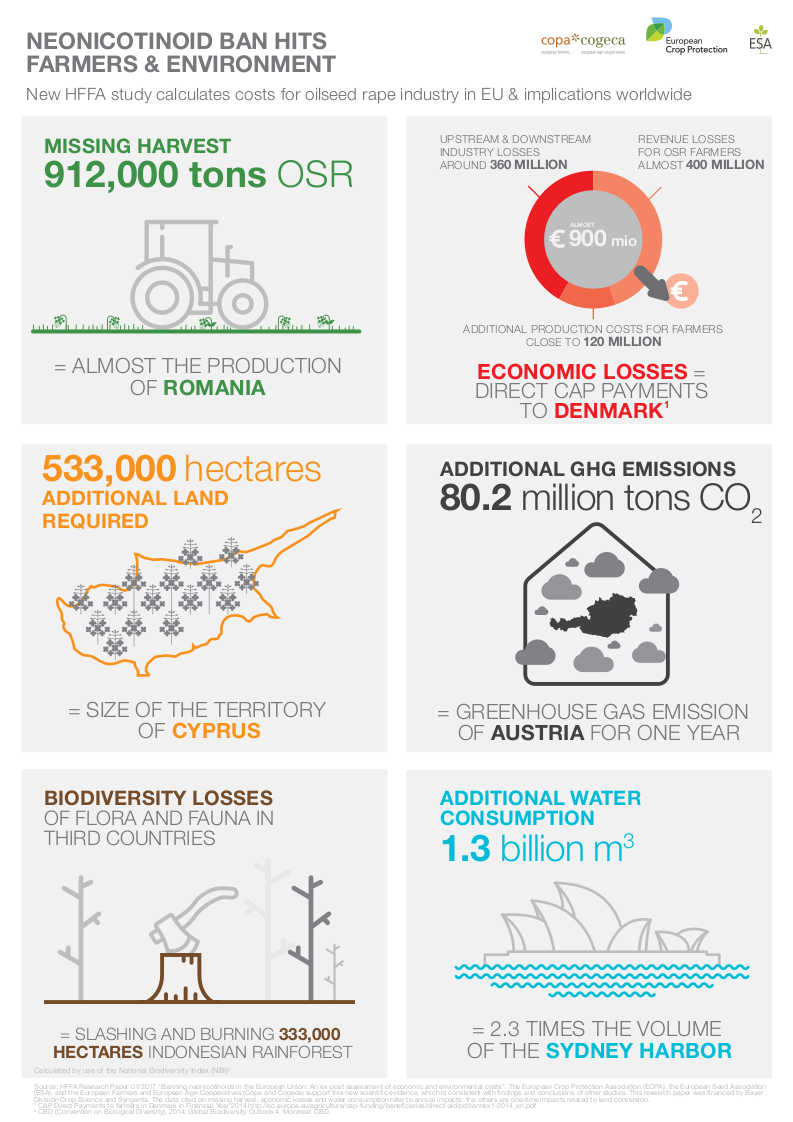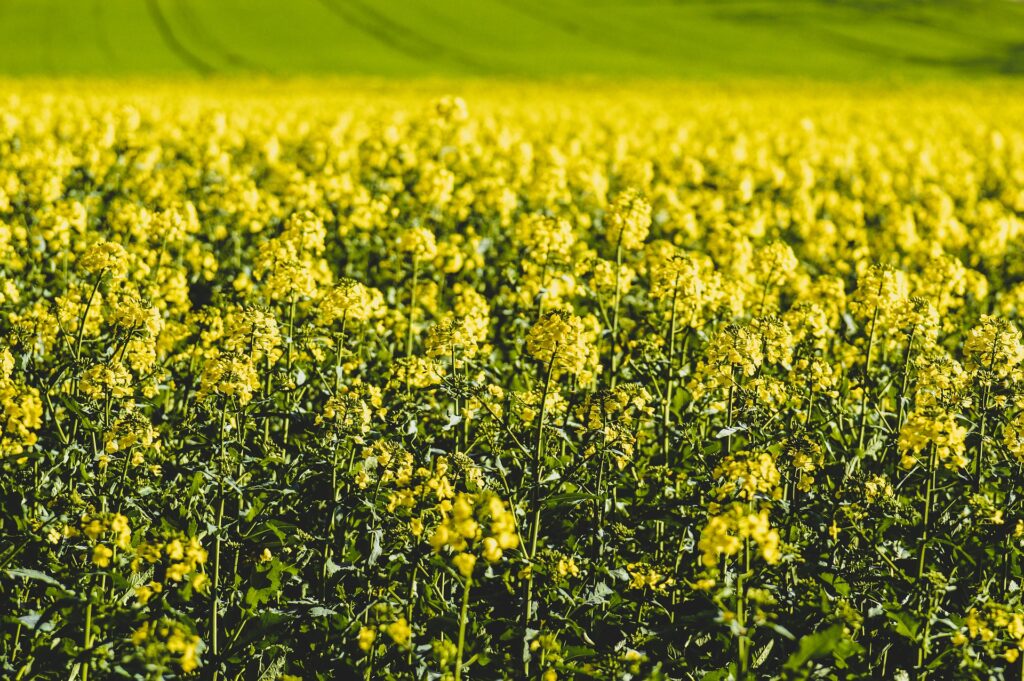A new study was launched Jan. 11 by HFFA Research – financed by Bayer and Syngenta – looking into the impact of the restriction of neonicotinoids in the UK. Thirteen scientific studies were reviewed in the report, dealing with the agronomic impacts of the ban of neonics in oilseed rape (OSR) production in the EU.
The studies not only revealed the EU suffered severe economic losses in the oilseed sector, but there was a clear negative environmental impact as well.
The three main findings in the study include;
- a negative yield impact of four per cent resulting in 912,000 tons of missing harvest;
- an average of 6.3 per cent of harvest quality losses;
- an average of 0.73 additional foliar applications per hectare of cultivated oilseed rape.
The significant environmental impacts within the EU and on a global scale determined;
- globally shifting oilseed rape production outside the EU triggered a conversion of more than 500.000 ha of grass land and natural habitats to arable land equalling the loss of over 300.000 ha of biodiversity-rich rainforest;
- in the EU, additional foliar insecticide applications added Greenhouse Gas (GHG) emissions of estimated 0.03 million tons CO2 equivalents and 1.4 million m3 of additional water use annually.
This amounts to an overall € 900 million economic impact to the European oilseed rape industry per year.
The study also concludes the following impacts felt by EU farmers;
- Across these seven countries, oilseed rape crop areas declined by approximately four per cent in 2016;
- The combined economic impact across the countries of the loss of production
(€ 96 million) and increased cost of production (€ 86 million) is estimated to have reduced the industry farm gate gross margin of oilseed rape production by € 182 million, which represents an average reduction of nine per cent in 2015; this includes cases, in which growing winter oilseed rape may no longer be pro table. - A high risk of resistance development due to an estimated five-fold increase in pyrethroid usage increase.
The restriction was put in place following the European Food Safety Authority (EFSA) review of various studies showing the impact of neonicotinoids on bees in 2012. The European Commission restricted the application of three neonicotinoids – clothianidn, imidacloprid, thiamethoxam – for seed treatment, soil application and foliar treatment in crops attracted by bees. Regulation (EU) No 485/2013 as implemented as of December 1, 2013, stated that seeds treated with one of the three of the neonics was prohibited. The ban did not have an end date, but the regulation allowed for a review two years post ban implementation. Once all the information is reviewed, the EU will decide whether to lift, maintain or amend the ban.
Oilseed Rape production provides edible vegetable oils, animal feed and biodiesel. Next to Canada, China, India, Australia, and the Ukraine, the EU is a leading producer of rapeseed oil.














